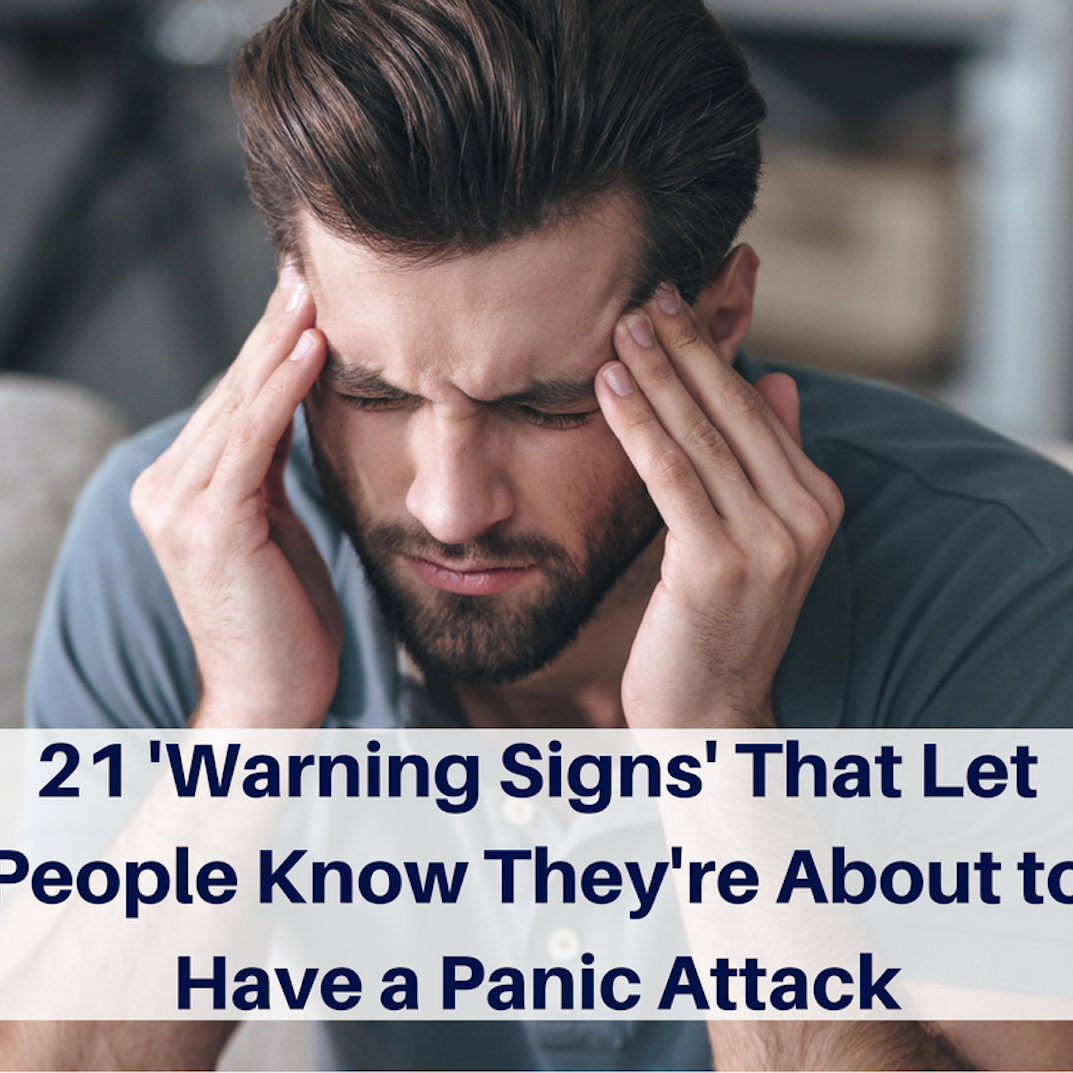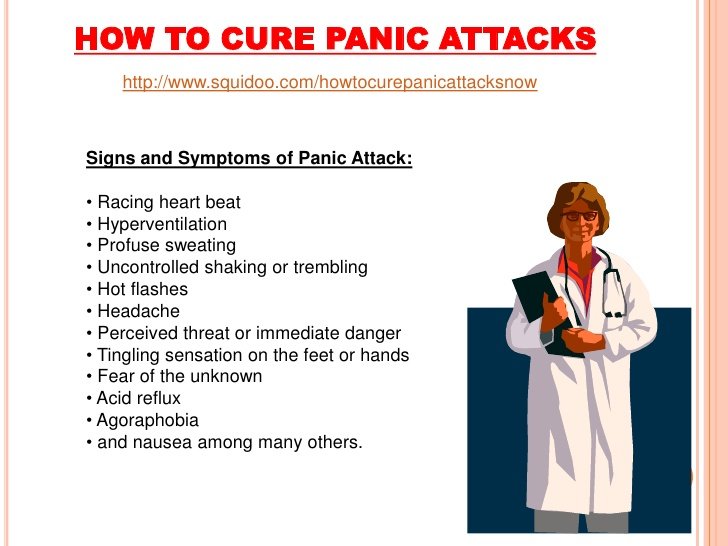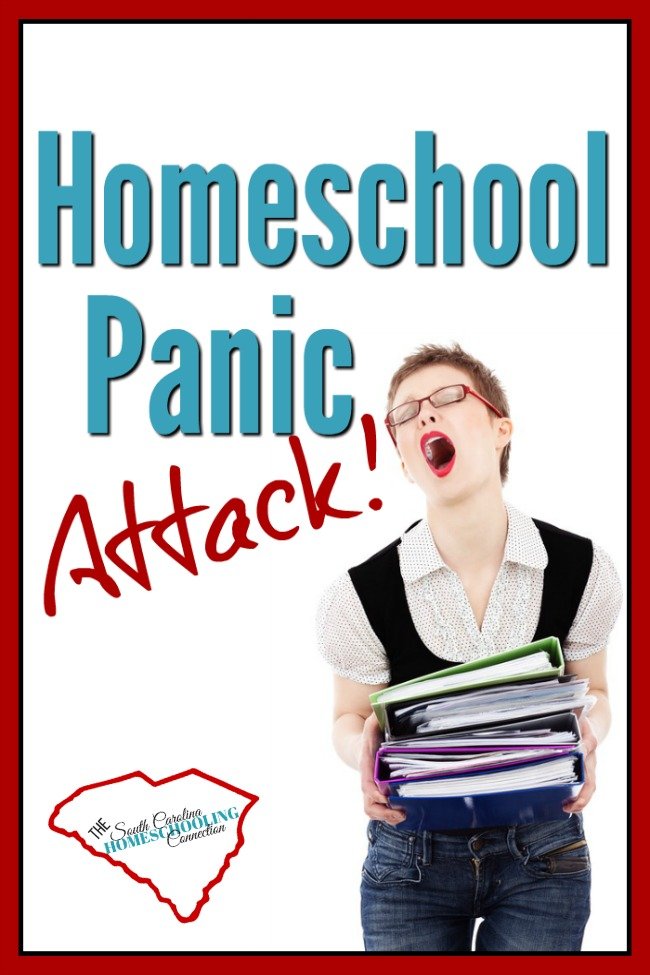Difference Between Panic Attacks And Anxiety Attacks
Knowing the difference between panic and anxiety attacks can help you understand the symptoms before and during the episode.
Panic attack
A panic attack causes you to feel intense, sudden fear that can be overwhelming and immobilizing. They can happen for no reason, or a triggering event can cause one. During a panic attack, you may feel terrified or threatened.
Some people experience panic attacks as a part of panic disorder, and others only have them once or occasionally. Panic attacks usually only last a few minutes.
Anxiety attack
An anxiety attack occurs when stress, anxiety, and worry become overwhelming. They are brought on by persistent worry either over big events, like illness and death, or small, everyday things. The attack is the result of building anxiety over time that reaches a breaking point.
An anxiety attack is not so much an attack but just when anxiety comes to a head. They are episodes of intense worry, fear, and dread that trigger physical symptoms. They feel more predictable since they are the result of you worrying about something.
What Are The Complications Of Panic Attacks
Panic attacks are highly treatable. Unfortunately, many people put off seeking help because theyre embarrassed. Untreated panic attacks or panic disorder can interfere with your ability to enjoy life. You may develop:
- Anticipatory anxiety: The possibility of having a panic attack triggers extreme anxiety.
- Phobias: A phobia is an extreme, unreasonable fear of something specific. For instance, acrophobia is a fear of heights, while claustrophobia is a fear of enclosed spaces.
- Agoraphobia: Approximately two-thirds of people with panic disorder develop agoraphobia. This anxiety disorder makes you afraid to be in places or situations where a panic attack might happen. The fear can become so extreme that you become too afraid to leave your house.
How To Tell If An Attack Is Anxiety Or Something Else
The biggest question people have is whether or not they suffered from an anxiety attack or something more physically serious, like a heart attack.
Unfortunately, the symptoms are so close to each other that the only way to tell is to talk to a doctor. The important thing to realize is that anxiety attacks are quite common, and heart attacks/serious health issues in those that are younger and are generally in good health are less common. There are a few differences as well:
- Although both may cause vomiting, heart attacks are more likely to lead to vomiting.
- Chest pains during heart attacks tend to radiate more throughout the shoulder.
- Anxiety attacks are more likely to have a âpeakâ at about 10 minutes.
It is always a good idea to speak with your doctor at least once.
Also Check: What Is The Meaning Of Phobia
The Difference Between An Anxiety Attack And A Panic Attack
Once again, anxiety attack is not a clinical term. It’s a term used to describe periods of more intense anxiety that go beyond traditional anxiety experiences.
That differs from the term panic attack. Panic attacks are severe anxiety attacks like what is described above – attacks that are often so disabling that many people struggle to cope with them and develop panic disorder, health anxiety, and possibly agoraphobia.
Traditionally, the term “anxiety attack” is used to discuss weaker versions of panic attacks. If you have multiple panic attacks, you have panic disorder. Anxiety attacks can affect anyone – even those without panic disorder or an anxiety disorder – and so the term is used to encompass all of these types of attacks.
For the purposes of this article, we’ll discuss these types of anxiety attacks as the weaker version of a panic attack. But in life, people do use the two terms somewhat interchangeably, and both are related to the same feelings of doom, along with relevant symptoms.
What Questions Should I Ask My Doctor

If you have panic attacks, you may want to ask your healthcare provider:
- Why am I having panic attacks?
- What is the best treatment for panic attacks?
- How long will I need therapy?
- How long do I need to take medications?
- Should I look out for medication side effects?
A note from Cleveland Clinic
Panic attacks can be extremely uncomfortable. Although theyre not physically harmful, they can take a toll on your mental health and stop you from doing the things you love. Dont be embarrassed to tell your healthcare provider that you have panic attacks. Your provider can help you overcome fears and anxieties that trigger attacks. You can get better with treatments like psychotherapy and medications.
Last reviewed by a Cleveland Clinic medical professional on 08/12/2020.
References
You May Like: Does Pristiq Help With Anxiety
Are All Panic Attacks The Same
Not all panic attacks are experienced in the same way. The following describes one way panic attacks are categorized:
- Expected panic attacks: These attacks occur when a person is subjected to or is anticipating a particular trigger. For example, a person with a fear of heights may have a panic attack when inside of a tall building.
- Situational predisposed panic attacks: These attacks are similar to cued panic attacks, but do not always occur after subjection to a feared situation. These attacks also dont always occur at the time the person is exposed to the trigger. For instance, a person who has a fear of flying may not always have a panic attack while on a plane or may have one after being on a flight.
- Unexpected panic attacks: These attacks occur suddenly without any internal or external cues.
The Effects Both Mental And Physical
Reiki practitioner Jane Elizabeth, left, and psychotherapist Carolyn Yaffe stress the importance of breathing techniques to combat panic attacks. Courtesy Jane Elizabeth and Carolyn Yaffe
Panic attacks can be triggered by myriad external experiences, such as crowded or enclosed places or, alternatively, wide-open spaces. Work, family and relationship issues, trauma, major illness or an accident can also play a part.
Stimulants such as caffeine and nicotine can contribute, while anxiety-prone people are more likely to be affected. Women are twice more likely to experience them than men and, if panic attacks continue, they are classed as a panic disorder.
Often, people develop specific fears and phobias, such as leaving their home, travelling, attending work or school, says Carolyn Yaffe, a psychotherapist at Medcare Camali Mental Health Clinic. They may also avoid social situations. Social interactions can easily trigger a panic attack when a person is experiencing social anxiety or panic disorder. They can also contribute to increased anxiety and depression and, often, people will most fear the anticipation of a panic attack rather than the panic attack itself.
Many celebrities have spoken about their experiences of having panic attacks, including Oprah Winfrey, pop star Ellie Goulding and Oscar-winning actress Emma Stone.
Also Check: What Are The Three Stages Of Schizophrenia
What Are The Signs And Symptoms Of Panic Disorder
People with panic disorder may have:
- Sudden and repeated panic attacks of overwhelming anxiety and fear
- A feeling of being out of control, or a fear of death or impending doom during a panic attack
- Physical symptoms during a panic attack, such as a pounding or racing heart, sweating, chills, trembling, breathing problems, weakness or dizziness, tingly or numb hands, chest pain, stomach pain, and nausea
- An intense worry about when the next panic attack will happen
- A fear or avoidance of places where panic attacks have occurred in the past
It Can Be Hard To Catch Your Breath
Shortness of breath and hyperventilation are clues that you could be in panic mode. Breathing disruptions are one of the most universal symptoms of panic attacks, says Lily Brown, PhD, director of research with the Center for the Treatment and Study of Anxiety at the University of Pennsylvanias Perelman School of Medicine in Philadelphia.
You May Like: Does Pristiq Help With Anxiety
Cause Of Anxiety Attacks
Anxiety attacks are usually although not always caused by severe stress. The symptoms depend on the type of attack. The term anxiety attack is sometimes used interchangeably with the term panic attack, but may also refer to any periods of extreme anxiety beyond what a person normally experiences.
Could I Have Panic Disorder
Recognizing a panic attackPanic disorder involves repeated panic attacks, so it’s important to know what a panic attack feels like. Here is a list of signs that youre having a panic attack:
|
If the first symptom plus several of the others come on suddenly, you may be experiencing a panic attack. Panic attacks usually peak within a few seconds or a few minutes, although it can take some time for all the symptoms to settle. Panic attacks can happen at any time and while they are sometimes triggered by a stressful life event, they can often appear to be triggered by nothing at all.
You May Like: What Is The Meaning Of Phobia
Why We Need To Make Sure People Understand The Difference
While conducting research for this article, we encountered more than a dozen mental health professionals who mistakenly believed the terms anxiety attack and panic attack were synonymous. They were licensed professionals, but none of them had a specialty in anxiety. Because anxiety attack is not a clinical term, they assumed it was a synonym for panic attack. This caused them to use the terms interchangeably, which can often confuse the issue even more.
People who deal with anxiety attacks or panic attacks often make similar mistakes. Some suffer from panic attacks but use the term anxiety attack to describe their symptoms and vice versa.
This confusion is why potential therapy clients and other anxiety sufferers need to educate themselves more on the topic or work with an anxiety specialist who really understands the differences. If you dont understand the terms and their differences, you might end up treating a panic disorder that you dont actually have. In the worst case scenario, you could even become dependent on a medication you dont need. Thats why its vital to seek out information about your specific condition and work with someone who is knowledgeable about the challenges that your unique condition presents. With luck, this article has been helpful in shedding some light on the differences between these similar terms!
Concentrate On Your Breathing

Focus on breathing in slowly, then breathing out slowly. It can be helpful to count when youre breathing to focus your mind. You can start small at first, like counting to three as you breathe in and counting to three as you breathe out. When you begin to calm down, you can increase how long you hold each breath to five seconds or seven seconds.
There are lots of different breathing techniques that you can try. You can use apps like Headspace and Calm to practise breathing exercises, or have a look online and see what works best for you.
You May Like: What Are The Three Stages Of Schizophrenia
Engage In Light Exercise
Endorphins keep the blood pumping in exactly the right away. It can help flood our body with endorphins, which can improve our mood. Because youre stressed, choose light exercise thats gentle on the body, like walking or swimming.
The exception to this is if youre hyperventilating or struggling to breathe. Do what you can to catch your breath first.
Do I Have An Anxiety Disorder
If you identify with any of the following seven signs and symptoms, and they just wont go away, you may be suffering from an anxiety disorder:
Don’t Miss: What Is The Meaning Of Phobia
Are These Conditions Included In The Dsm
Anxiety attack wasnt included under any diagnostic category in the latest edition of the Diagnostic and Statistical Manual of Mental Disorders .
- Anxiety attack is actually a colloquial term created for those who experience anxiety and describes periods of intense or prolonged distress.
- Panic attacks are easy to define because theres a clinical consensus. Heres an official DSM definition: A panic attack is a sudden episode of intense fear that triggers severe physical reactions when theres no real danger or apparent cause.
Also Check: What A Panic Attack Feels Like
Causes Of Anxiety Fear And Panic
There are many different causes of anxiety, fear or panic and it’s different for everyone.
When you’re feeling anxious or scared, your body releases stress hormones, such as adrenaline and cortisol.
This can be helpful in some situations, but it might also cause physical symptoms such as an increased heart rate and increased sweating. In some people, it might cause a panic attack.
Regular anxiety, fear or panic can also be the main symptom of several health conditions. Do not self-diagnose speak to a GP if you’re worried about how you’re feeling.
Read Also: Can You Go To Urgent Care For Panic Attacks
What Does It Feel Like When You’re Having A Panic Attack
Well, it can literally feel like you’re about to die. You can have chest pain, shortness of breath, numbness, tingling, and or sweating. That’s why many people who are having panic attacks end up going to the emergency room. Most panic attacks peak over a matter of minutes and they’ll last for less than 30 minutes, but that time or the total duration of the attack can vary. So, panic attacks can actually last from a matter of seconds to hours.
Have You Ever Had A Panic Attack? If So, Please Comment Down Below And Please Share Your Symptoms Of A Panic Attack.
Do I Have Panic Disorder
Having panic attacks does not necessarily mean that a person has panic disorder. People who have panic disorder experience recurring and unexpected panic attacks, but panic attacks are also common among other anxiety disorders, including social anxiety disorder , post-traumatic stress disorder , and specific phobias.
You May Like: What Is The Cure For Such Disorders Beatings
What Are The Warning Signs Of A Panic Attack
A panic attack can feel like a hand is sliding around your throat, says Philip R. Muskin, MD, professor of psychiatry at Columbia University Irving Medical Center in New York City. Your heart pounds, you can feel sweaty and shaky, and you can feel a sense of dread and doom, he explains. Other symptoms can include chills, trembling, breathing problems, weakness or dizziness, tingly or numb hands, chest pain, stomach pain, and nausea.
What To Do When You Feel The Signs Of A Panic Attack Coming On

Panic attacks can be incredibly frightening. The intense feeling of anxiety can happen very quickly, and the physical symptoms of panic attacks can be so powerful that many people who experience them believe that they are having a heart attack, collapsing or even dying.
When you feel the signs of a panic attack coming on, it is important to know what you should do in the moment. Here, we provide recommendations on what to do when one does start.
If you regularly have panic attacks, its also important to recognise that there is support and treatment that can help you to control them and prevent them from happening in the future. In this article, we will also outline the support and treatment that is available at our Priory hospitals and wellbeing centres to help you to address your challenges and resume the fulfilling life you deserve.
Read Also: Schizophrenia Inheritance Rate
Should You See Your Doctor About Panic Attacks
A panic attack can make you feel like youre about to collapse or even die, but it’s usually harmless. However, in some cases, you may need medical advice to rule out an underlying physical cause.
Get medical advice if:
- your panic attack continues after doing 20 minutes of slow breathing
- you still feel unwell after your breathing returns to normal
- you still have a rapid or irregular heartbeat or chest pains after your panic attack
- you regularly have panic attacks, as this could be a sign that you have panic disorder
What To Do When You Have An Anxiety Attack
Anxiety attacks often need to run their course. Once they’ve started, there is very little that you can do to stop them completely. They’re a reaction that your body has that is somewhat beyond your control. They can be prevented, and their severity can be lessened, but they are very hard to stop.
Reducing its severity has to do with reacting correctly to the symptoms. Remember – the physical symptoms you experience are very real, and very disruptive. But they’re not related to any health problem, and solely a result of your anxiety. If you believe you feel an anxiety attack coming or you’re certain you’re in the middle of the one, try the following:
Drinking water may also calm the mind, and if you feel strong enough, a good jog can get your body to breathe better and use oxygen at a healthier pace.
You May Like: Can Dehydration Cause Panic Attacks